SPEAKERS - ETRS ANNUAL MEETING 2019
TISSUE REGENERATION - "FROM BASIC SCIENCE TO CLINICAL TRANSLATION"
Professor Irving Weissman, MD
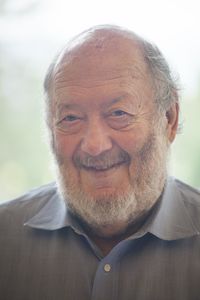
Irving Weissman is the Founding Director of the Institute for Stem-Cell Biology and Regenerative Medicine at Stanford University (ISCBRM), Director of the Stanford Ludwig Center for Cancer Stem Cell Research, and former Director of the Stanford Cancer Center.
His research on hematopoiesis, hematologic malignancies and solid tumors has led to several discoveries and the development of new therapies. These include the isolation and transplantation of pure hematopoietic stem cells (HSCs), isolation of hematopoietic progenitors, and the demonstration that, upon transplantation, pure HSCs can regenerate the entire blood and immune system without causing graft vs. host disease. He co-discovered the human HSC and led the first clinical trials involving human stem cell transplantation, that demonstrated beneficial outcomes of transplanted purified, cancer-free HSC for women with metastatic breast-cancer who received high dose chemotherapy.
Those earlier studies on HSCs and hematopoiesis served as a foundation for the biological definition and prospective isolation of human leukemia stem cells [LSC]. In AML he proposed and proved preleukemic development in clones of HSC accumulating one mutation at a time with the last mutation giveing rise to the LSC. Next, by comparing LSC to HSC, Weissman discovered CD47 as a ‘don’t eat me’ signal used by leukemias and all other human cancers to evade innate immunity. He showed that blocking this interaction with anti CD47 antibodies unleashes phagocytosis of cancer cells by macrophages and leads the clinical development. achieved remarkable results in phase-I clinical trials.
Weissman was the main force behind proposition 71 (2004) and established the California Institute of Regenerative Medicine to facilitate translation of discoveries in the stem-cell field into promising therapies and bringing them to patients in need.
Weissman is a member of the National Academy of Sciences, the Institute of Medicine at the National Academy, and the American Association of Arts and Sciences.
Boris Hinz Dip. Biol., PhD.
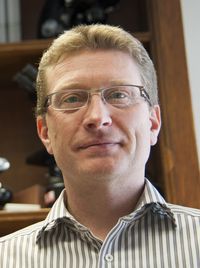
Boris Hinz is University of Toronto Distinguished Professor in Tissue Repair and Regeneration with primary appointment in the Faculty of Dentistry, Matrix Dynamics Group. He is cross-appointed with the Faculty of Medicine, Department of Surgery and the Institute of Biomaterials and
Biomedical Engineering. Dr. Hinz holds a PhD degree in Cell Biology and Theoretical Biology from the University of Bonn, Germany, obtained in 1998. From 1999 to 2002, he was postdoctoral fellow of Dr. Giulio Gabbiani, Department of Experimental Pathology, University of Geneva,
Switzerland. Dr. Hinz then moved on to lead a research group at the Ecole Polytechnique Fédérale de Lausanne (EPFL), Switzerland, joining Cell Biology, Biophysics, and Bioengineering. He was nominated Maître d'enseignement et de recherche (Assistant Professor level) in 2006 and
moved to Toronto in 2009.
Dr. Hinz has been president and board member of the European Tissue Repair Society and was board member of the Wound Healing Society. He is secretary and inaugural board member of the Canadian Connective Tissue Society, board member of the International Dupuytren Society
and the Canadian Dupuytren Society. He is Senior Editor of the journal “Wound Repair and Regeneration”, Associate Editor of “Biochemistry and Cell Biology”, editorial board member of “Matrix Biology”, and Associate Member of the Faculty of 1000.
Dr. Hinz aims in understanding the role of contractile myofibroblasts in physiological tissue repair and in causing pathological tissue fibrosis. The findings of his lab are published in peer-reviewed journals, including Cell, Nat. Mater., Nat. Med., Nat Commun, Curr. Biol., J. Cell Biol., Stem
Cells, Cell Reports, Stem Cell Reports, J. Clin. Invest., Nature Immunol., PNAS, EMBO J., Mol. Biol. Cell, Cardiovascular Res., J. Cell Sci., Biomaterials, Biophys. J., Am. J. Pathol., PLoS One, and the J. Invest. Dermatol., receiving >13,000 citations by December 2018 with h-index of 47 (Scopus).
He published 110 peer reviewed articles, 13 book chapters, and was invited to >240 seminar and conference talks with >300 congress abstracts.
His research led to the creation of two startup companies specialized on anti-fibrotic coatings for silicone implants and novel “soft” cell culture devices. Dr. Hinz’ research is currently funded by a multi-project Foundation Grant from the Canadian Institutes of Health Research (CIHR), the
Canada Foundation for Innovation (CFI), Ontario Research Foundation (ORF), the Connaught Innovation Program, and the European Union’s Transnational Program for Projects on Rare Diseases.
Christina Scheel, MD
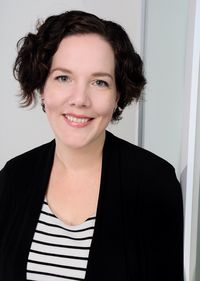
Dr. Scheel is currently a resident in dermatology at the St. Josef Hospital, Ruhr-University Bochum, Germany, and a group leader at the Institute of Stem Cell Research, Helmholtz Center Munich, where she was the recipient of a Max Eder Starting Grant by the German Cancer Aid. Dr. Scheel obtained her Medical Doctor at the Universities of Münster and Düsseldorf in Germany and carried out postdoctoral research at the Whitehead Institute of Biomedical Research, Cambridge, USA. Her research focuses on mechanisms of epithelial plasticity in the context of normal regeneration and metastatic progression. For this purpose, her group has developed an organoid assay for primary human mammary epithelial cells harvested from reduction mammoplasties and milk. In 2018, Dr. Scheel co-organized the Gordon Research Conference “Mammary Gland Biology - Mammary Gland Development and Breast Cancer from Systems Biology to Single Cell”."
Professor Heiko Lickert, PhD
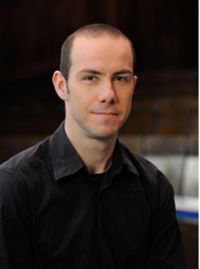
Heiko Lickert is a Full Professor and Chair of -cell biology in the Medical Faculty of the Technical University Munich (TUM) and is the Director of the Institute of Diabetes and Regeneration Research (IDR) and Adjunct Professor in the Institute of Stem Cell Research (ISF) at the Helmholtz Zentrum München. He is in the Executive Committee of the Helmholtz Diabetes Zentrum (HDC) and TUMCells GMP Facility, as well as in the Research Coordination Board of the German Center for Diabetes Research (DZD).
He obtained his PhD from the Albert-Ludwig University and Max-Planck Institute in Freiburg and his Postdoctoral studies were carried out at the Mount Sinai Hospital, Toronto, Canada. He is an expert on organ development and tissue homeostasis with emphasis on endocrine lineage formation in the gut and pancreas, insulin-producing -cell development, regeneration and replacement, as well as metabolic signaling and stem cell-based drug screening. His work has been funded by the European Research Council (ERC), a prestigious Emmy-Noether fellowship of the German Research Foundation (DFG), the Ministry of Education and Research (BMBF), the Alexander-von-Humboldt Foundation, the Helmholtz Association and the European Union.
Neil Henderson BSc (Hons), MBChB, PhD
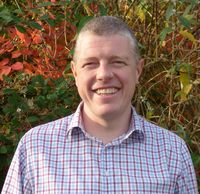
Neil Henderson undertook medical training in Edinburgh and London before completing a Wellcome Trust funded PhD at the MRC Centre for Inflammation Research, Edinburgh. He then trained in hepatology and was awarded a Wellcome Trust Intermediate Fellowship, during which time he spent a 3 year post-doctoral period based in Dean Sheppard's lab at the University of California, San Francisco, USA. Neil was then awarded a Wellcome Trust Senior Research Fellowship in Clinical Science to investigate novel mechanisms of organ fibrosis and regeneration, using cutting-edge approaches including intravital imaging and the rapidly evolving field of single cell RNA sequencing.
Professor Paul Martin BSc, PhD.
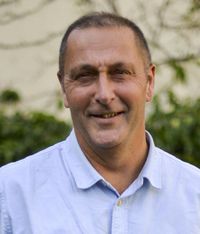
Paul Martin did his undergrad degree at Sussex and then a PhD with Julian Lewis at King’s London, before setting up lab in Oxford Anatomy; he moved to UCL Anatomy where he was for 10 years and then in 2003 moved to a joint position in Bristol’s Biochemistry and Physiology Departments. His lab works on wound healing and has established models to study repair and inflammation in mouse and zebrafish and Drosophila. The current twin foci of his lab are to investigate the genetics and cell biology of wound inflammation, in order to learn how best to modulate the inflammatory response to prevent fibrosis, and identifying parallels between wound and cancer-triggered inflammation. He was elected a Fellow of the Academy of Medical Sciences in 2011 and to membership of EMBO in 2012.
Professor Peter Friedl, MD, PhD
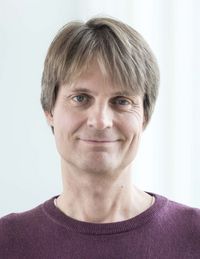
Peter Friedl holds the chair for Microscopical Imaging of the Cell at the RIMLS since October 2007, which includes the Core Facility for Microscopy at the Radboudumc. Research interest is the visualization of cell-matrix interactions and dynamic cell patterning during immune cell interactions and tumor invasion. We, therefore, use 3D extracellular matrix (ECM) based cell culture models and advanced imaging procedures. Recently, the group moved into in vivo-imaging of tumor and immune cell migration by multiphoton microscopy. This complements in vitro culture technology. These approaches have provided insight into the serial dynamics of T cell scanning across antigen-presenting cells and the diversity of tumor invasion mechanisms, as well as novel escape responses in tumor cell migration. New technology allows imaging deep into tumours (video-interview)
In addition, he fulfills the role of the head of the Cell Dynamics Laboratory and, since 11/2011 has a joint-appointment joint-faculty position as head of the imaging section at the David H. Koch Center, Department of Genitoureteal Oncology, MD Anderson Cancer Center, Houston, TX, USA.
Professor Rafael Kramann, MD
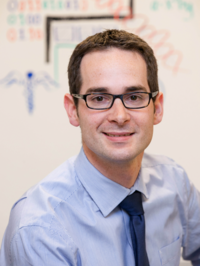
Dr. Kramann is Professor of Medicine and Chair of Nephro-Cardiology at RWTH Aachen University, Germany. He directs the Laboratory of Translational Kidney and Cardiovascular Research in the Division of Nephrology and Clinical Immunology (www.kramannlab.com) and is board certified physician for internal medicine and nephrology. He received his MD in cardiology at RWTH Aachen University in 2007 and completed postdoctoral training in the Laboratory of Benjamin Humphreys at Brigham and Women´s Hospital, Harvard Medical School, Boston MA. Dr. Kramann´s basic and translational research focusses on understanding cardiovascular disease in chronic kidney disease patients and organ fibrosis. He is aiming to develop novel targeted therapeutics in vascular sclerosis, fibrotic disease and heart failure. Dr Kramann´s clinical research interests are focussing on vascular calcification and uremic cardiomyopathy. He has authored more than 50 primary research and review articles and he is recipient of various prestigous awards including the Stanley Shaldon Award of the European Renal Association (ERA-EDTA), the Nils Alwall and Carl Ludwig Awards of the German Society of Nephrology and the Grand Prize in the Harvard Innovation Lab Dean´s Health and Lifescience Challenge.
Kerstin Bartscherer, PhD
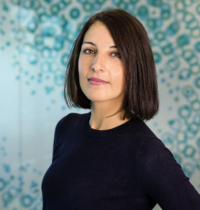
Dr. Kerstin Bartscherer is head of the research group Tissue Regeneration at the Hubrecht Institute for Developmental Biology and Stem Cell Research in Utrecht, the Netherlands. Before moving to Utrecht, she performed research at the Max Planck Institute for Molecular Biomedicine, the University of Barcelona, and the German Cancer Research Center. Kerstin recently obtained an ERC Starting grant for work on regeneration initiation in planarians and vertebrate models, and is currently establishing the African spiny mouse as a model organism for mammalian regeneration at the Hubrecht Institute. In 2018, she co-organized the EMBO conference on “The molecular and cellular basis for regeneration and tissue repair”.
Assistant Professor Ryan R. Driskell, PhD
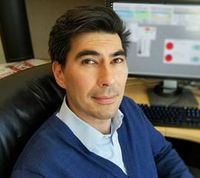
Dr. Driskell is the head of the Fibroblast and Skin Regeneration Laboratory at the School of Molecular Biosciences in Washington State University. He trained as a Cell and Developmental Biologists in the laboratory of Dr. John Engelhardt at the University of Iowa where he received his Ph.D. in 2006 studying lung biology and Wnt signaling. Dr. Driskell did his post-doctoral training in Dr. Fiona Watt’s Laboratories at Cambridge University and King’s College London in the UK, where he established a functional fibroblast lineage hierarchy that is important in regulating the architectural nature of skin development and wound repair. The Driskell Laboratory utilizes the transgenic mouse technologies in conjunction with molecular and histological techniques to deduce an understanding to induce skin regeneration.
Professor Sabine Werner, PhD
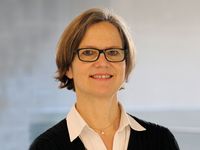
Sabine Werner studied Biochemistry at the Universities of Tubingen and Munich. She earned her Ph.D. at the University of Munich, after having completed her dissertation at the Max-Planck-Institute of Biochemistry in Martinsried in the department of Prof. Peter Hans Hofschneider. After a short postdoctoral period at the same institute, she moved to the University of California San Francisco, where she started to work on the molecular mechanisms of growth factor action and tissue repair as a postdoctoral scientist in the laboratory of Prof. Lewis.T. Williams. From 1993-1999 she was a group leader at the Max-Planck-Institute of Biochemistry in Martinsried, Germany. In 1996 she obtained a Hermann-and-Lilly Schilling professorship of Medical Research at the same institute and from 1995-1999 she was also Associate Professor of Biochemistry at the Ludwig-Maximilians-University of Munich. She has been Full Professor of Cell Biology at ETH Zurich since 1999. The research of her laboratory focuses on the molecular and cellular mechanisms of tissue repair and the parallels to cancer.
Associate Professor Sara A. Wickström, MD, PhD
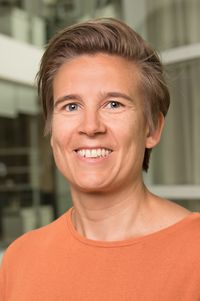
Sara Wickström studied medicine at the University of Helsinki, Finland, receiving her MD in 2001 and PhD in 2004. After postdoctoral training with Reinhard Fässler at the Max Planck Institute for Biochemistry in Munich, Germany, she was appointed as Group Leader at the Max Planck Institute for Biology of Ageing in Cologne, Germany in 2010. In 2018 her laboratory moved to the newly founded Helsinki Institute for Life Science at the University of Helsinki, Finland. Research in the Wickström lab aims to establish quantitative principles of epidermal stem cell niche self-organization, and how mechanical forces and cellular interactions integrate single cell behaviors to generate and maintain global patterns of a multicellular tissue.
Professor Karin Scharffetter-Kochanek, MD
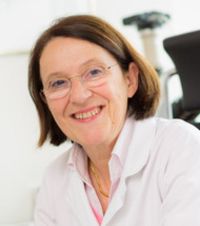
Karin Scharffetter-Kochanek´s research focus concentrates on dissecting mechanisms to prevent or identify new therapeutic approaches to enhance scar reduced wound healing and healthy aging.
Currently she holds the chair position (Medical Director) at the Department of Dermatology and Allergic Diseases at the University of Ulm in Germany. In her career she got a Heisenberg stipend as a visiting professor at the Institute for Human and Molecular Genetics, Baylor College of Medicine in Houston, USA and worked during a sabbatical leave at the National Institutes of Health in Bethesda, USA. She was further trained in the Laboratory for Connective Tissue Research, University Hospital for Dermatology at the Ludwig-Maximilian-University in Munich (Professor Thomas Krieg). She holds a position as a Fachkollegiatin of the German Research Foundation (DFG) and has served as research dean for 12 years. She was president of the ETRS from 2002 to 2004 and served at the ETRS board for several years. She served as president of the Arbeitsgemeinschaft Dermatologische Forschung and built up a clinical research group funded by the German Research Foundation (DFG) for 8 years on mechanisms of organ aging and reduced regenerative capacity. Karin Scharffetter-Kochanek was awarded membership of the prestigious National Academy of Science Leopoldina in 2008.
Professor Peter Horvath, PhD
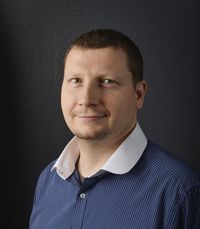
Dr. Peter Horvath (1980) is a group leader at the Hungarian Academy of Sciences (HAS), a Finland Distinguished Professor Fellow at University of Helsinki (FIMM) and the director of FIMM-HCA a high-content screening facility in Helsinki. He has 11 years of experience in image analysis and machine learning gained at ETH Zürich and INRIA Sophia Antipolis (Ph.D. 2008). His groups find computational solutions to biological problems, combining wet-lab and light microscopy with image analysis and machine learning. He has developed novel pipelines for high content microscopy, which have identified genes with essential roles in cancer, bacterial infections, viral infections, and diabetes. Results have been published in high-impact journals (50+ peer-reviewed publications total impact factor: 420) such as Science, Cell, Nature Methods, PNAS, Pattern Recognition, PLoS Pathogens, PLoS Biology, Cell H&M, EMBO Journal. He is regularly reviewing bioimage informatics articles in major journals, organizing conferences and summer schools, and invited speaker in conferences. He is the Co-founder of the European Cell-based Assays Interest Group (www.eucai.org), and the Councilor of the Society of Biomolecular Imaging and Informatics (www.sbi2.org).
He recently supervised single cell analysis, isolation and molecular studies (Nature Communications 2018, Cell Systems 2017, Nature Methods 2017, Nat. Rev. Drug. Disc. 2016). He was participating in a work discovered an essential gene and infection mechanism of Influenza A Viruses (Science 2014). Presented a novel scheme to analyze continuous biological processes using machine learning (Cell H&M 2014, JBS 2014, KEPAF 2014). He was analyzing light-sheet microscopic data (Integrative Biol 2014) and high-content imaging data (Oncotraget 2014, J of Virol 2014). His group also presented a work that revolutionized illumination correction for light microscopy (Nature Methods 2015.).
Professor Sabine Eming, MD
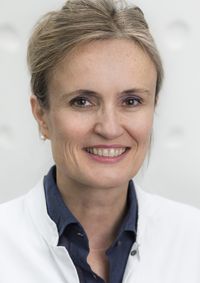
Sabine Eming is a Professor of Dermatology at the University of Cologne. During her studies in Medicine she became interested in questions regarding the regulation of immune responses. At that time she received a doctoral research stipend from The Scripps Research Institute in La Jolla, California to join the Laboratory of Frank Dixon. During her doctoral thesis she contributed to the development of the human-PBL-SCID mouse model that opened for the first time the possibility of obtaining specific human immune responses in an animal model. Back in Germany she received her MD degree at the University of Cologne. After having completed Medical School she was awarded by a DFG research stipend and moved as postdoctoral fellow to Boston to study mechanisms how tissues sense damage and how these events translate into a regenerative response or disease. Using the skin as a model system she performed her studies in the group of Jeffrey Morgan and Martin Yarmush at Massachusetts General Hospital at Harvard Medical School and Shriners Burns Institute. Since her work in Boston she became enthusiastic about mechanisms regulating skin function, and back in Germany she started her residency in the Department of Dermatology at the University of Cologne headed by Thomas Krieg.
During her career as Dermatologist at the University of Cologne Sabine Eming developed a program of work in skin damage and repair that encompasses the range from basic structure-function analysis, through in vivo models, to human skin diseases. One interest of the group is to understand immune cell plasticity at the interface of skin injury, repair and pathology. The findings might provide the possibility to manipulate the healing response in order to readjust postnatal repair into regeneration and to develop novel strategies for pharmacological interventions in pathological healing conditions associated with diabetes mellitus, inflammatory skin diseases or skin ageing.
Assistant Professor Yaron Fuchs, PhD
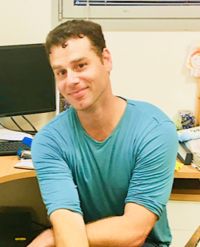
Born in Haifa, Israel, Dr. Fuchs is an Assistant Professor in the Faculty of Biology, the Lokey Interdisciplinary Center for Life Sciences & Engineering and the Technion Integrated Cancer Center. Dr. Fuchs is also a Deloro Career Advancement Chair and an Alon Fellow.
He began his academic career at Haifa University where he received a B.Sc., followed by a direct Ph.D. track for outstanding students, which was conducted at the Technion Israel Institute of Technology. Upon completion of his doctorate degree, he performed his post-doctoral research at The Rockefeller University and Howard Hughes Medical Institute. Recently he returned to the Technion where he heads the Laboratory of Stem Cell Biology and Regenerative Medicine.
Dr. Fuchs has had a long-term interest in different modes of cell death and how they regulate diverse aspects of stem cell biology and stem cell-dependent processes. His research has taken advantage of state of the art mouse models where he manipulates and traces different stem cell populations.
Throughout his career, Dr. Fuchs has received more than 20 awards for his scientific excellence and his unique teaching style. He has published in leading scientific journals and has spoken nationally and internationally about his own research focusing on adult stem cells in regeneration and cancer.
Professor Jovica Ninkovic
Jovica Ninkovic is a Professor at Ludwig Maximilian Universität München and heading the 'Neurogenesis and Regeneration' group at the Institute of Stem Cell Research (ISF) of Helmholtz Zentrum München. In collaboration with ISF Director Professor Magdalena Götz and Filippo Calzolari he has recently shown that both the rate of self-renewal and the diversity of stem cell neurons are limited and that the number of stem cells decreases with advancing age. The current work now identifies the specific steps on which these developments are based.
The Ninkovic group is pursuing 3 main lines of research:
1. Understanding and implementation of mechanisms to induce restorative neurogenesis from glial cells
2. Understanding and inhibition of glial scar formation in the vertebrate brain
3. Recovery of functional neuronal circuits after brain injury
Professor Gilbert Weidinger, PhD
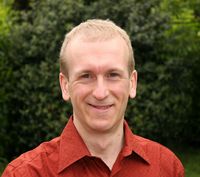
Gilbert Weidinger studied Biology in Salzburg, Austria, performed his PhD in the lab of Erez Raz at the University of Freiburg, Germany, and the Max-Planck-Institute for Biophysical Chemistry in Göttingen, Germany, and did postdoctoral research in the lab of Randall Moon at the University of Washington, Seattle, USA. In 2006, Gilbert Weidinger established his own group at the Biotec Center of the University of Dresden, Germany, and since 2012 he is Associate Professor at the University of Ulm, Germany.
During his PhD and postdoctoral work, Gilbert Weidinger used the zebrafish model to study mechanisms of early embryonic development, in particular germ cell specification and migration, and embryonic patterning by Wnt signaling pathways. As a postdoc he also became interested in studying the astounding regenerative abilities of adult zebrafish and has ever since focused on uncovering cellular and molecular mechanisms underlying fin and heart regeneration in this model.
He has found that plasticity of differentiated cells is an important mechanism underlying bone regeneration, has uncovered essential roles for Wnt, Notch and BMP signaling in the regulation of fin and heart regeneration, and has identified novel components of the Wnt signaling network. His work is published in high-ranking journals including Developmental Cell, Cell Reports and Nature Communications.
Professor Dr. Heinz Redl
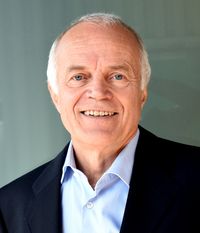
Heinz Redl has a background in biochemistry with almost 40 years’ experience in trauma and regenerative medicine research. He was the director of the Ludwig Boltzmann Institute of Experimental and Clinical Traumatology within the main trauma research center of AUVA (1998-2019) representing 7 trauma and 4 rehabilitation centers and holds the position of Associated Professor at the Technical University Vienna, Institute for Chemical Engineering, plus adjunct Professor at the University of Texas, Medical Branch at Galveston and at the Medical University of Vienna. He coordinates the Austrian Cluster for Tissue Regeneration since 2006, which includes 28 work groups from academia with multiple research targets and 12 spin-off groups. To further enhance industry cooperation he founded in 1998 the company Trauma Care Consult, which is specialized on preclinical research and assists products registration at FDA and EMA. In 2014 he co-founded the spin-off company Liporegena and in 2017 MorphoMed. Prof. Redl organized many conferences in the field of regenerative medicine such as the World Congress for Tissue Engineering and Regenerative Medicine (TERMIS 2012) and many annual workshops (Winterschool Radstadt and Wiggers Bernhard series). He holds positions in several societies, such as Past-Chair of TERMIS-EU and is member of multiple editorial boards (e.g. Tissue Eng., J.TERM, J. Eur Cells Mat.). He is editor in Chief of the updatable book series Springer/TERMIS “Tissue Engineering and Regeneration”. He was awarded in 2015 “International Fellow of Tissue Engineering & Tissue Regeneration” and in 2018 “International Fellow of the European Alliance for Medical and Biomedical Engineering and Science”.
His expertise includes experience in different fields of tissue regeneration, he is co-developer of the fibrin sealant system (>40 years), developer of surgical devices in current clinical use and many collaboration projects with major industry partners. He has co-authored > 560 papers and holds > 15 patents/patent submissions. He has also participated in several EC projects including e.g. NoE Expertissues, Angioscaff, Biodesign, IMCOSS, UGEN, Arrest Blindness as well as COST Actions.
Ludwig Boltzmann Institute for Clinical and Experimental Traumatology
Address: Donaueschingenstrasse 13, 1200 Vienna, Austria
Telephone number: +43 59393 41961
E-Mail : office@trauma.lbg.ac.at
Website: http://www.trauma.lbg.ac.at/en
Cluster www.tissue-regeneration.at
Associate Professor Jeremy Duffield, MD, PhD, FRCP.
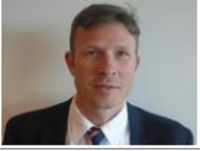
Dr. Duffield’s mission is to work with the best scientific teams using state of the art technological advances to make next generation medicines that will meaningfully change the lives of people with serious diseases.
Dr. Duffield is currently Global Head of Human Biology at Vertex Pharmaceuticals, specializing in transformative therapies for diseases with strong causal human biology, including Cystic Fibrosis, Sickle cell disease, Alpha-1 Antitrypsin Deficiency, FSGS and ADPKD. His department has responsibilities for disease selection, new target identification & validation, early assay development, patient population identification, biomarkers, in vivo imaging, pathology, & translational sciences. From 2013-2016 he was was Senior Research Fellow & Vice President of R&D at Biogen in Cambridge, MA, identifying new therapeutic targets in chronic diseases of CNS, lung & kidney and co-leading the Tissue Injury & Fibrosis therapeutic area which generated a pipeline of therapies for chronic diseases, including Integrin αvβ6 blockade for IPF, IRAK4 inhibition for ischemic injury, and therapies for lupus nephritis. In addition, at Biogen he chaired the Post Doctoral Program.
Dr. Duffield is a Physician Scientist, with a background in Developmental Biology (Masters) and Innate Immunity (PhD). Prior to joining Biogen, he ran a basic science laboratory at Harvard Univ. Boston, MA and U. Washington, Seattle, WA, as Assoc. Prof. of Medicine. His lab has published > 125 peer-review publications. Major scientific contributions include identification of important pathways regulating macrophage polarization, and discovery of fibroblast progenitor cells known as pericytes and MSCs. His lab identified important roles for c-JUN, WNT, MyD88, & microRNA-21, leading to patents and now clinical trials in Alport syndrome, IPF, & stroke. Dr. Duffield maintains affiliate positions with U. Washington, practices Nephrology at Massachusetts General Hospital, and serves on NIH academic committees.
Benjamin Dekel, MD, PhD
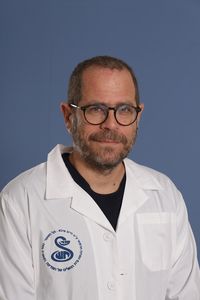
Prof Benjamin Dekel MD, PhD is the Director of the Pediatric Stem Cell Research Institute and the Division of Pediatric Nephrology at the Edmond and Lily Safra Children's Hospital, Sheba Medical Center. He is a Full Professor of Pediatrics, Human Genetics and Biochemistry and leads the Pediatric Research Center on Genes, Development and Environment at the Sackler School of Medicine, Tel Aviv University. He received a BSc and MD degrees from the Technion and a PhD from the Weizmann Institute, all with honors. He completed a Pediatric Residency at Sheba, Post-Doctoral fellowship in stem cell biology at the Weizmann and a Pediatric Nephrology Fellowship at Schneider Medical Center. Prof. Dekel served as a visiting Professor at the Institute of Stem Cell Biology, Stanford University. He is known internationally as one of the most innovative and highly recognized investigators in the field of human renal stem cell biology, cell therapy and renal regenerative medicine. In the field of human kidney development and pediatric renal cancer, Prof. Dekel has pioneered the identification of human stem/progenitor cells and their use in tissue repair, regeneration and targeted cancer therapy. Some of his bench research has been translated to clinical trials for relapsing kidney cancer. Moreover, with the idea of translating basic research in renal regenerative medicine to bedside, Prof Dekel founded Kidneycure Bio. Prof. Dekel is an elected member of the American Society of Clinical Investigation and has received multiple awards among which are the Youdim Prize for Excellence in Cancer Research and the IMA Prize for Medical-Scientific Contribution.
Philipp-Alexander Neumann, MD
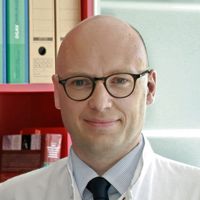
Dr. Neumann is a surgeon, physician scientist and PI of his group at the Department of Surgery at the Technical University of Munich Germany (TUM). Next to his clinical career in surgery, he has specialized on basic and clinical science of colorectal surgery with special interest in inflammatory bowel disease.
During his postdoctoral fellowship at Emory University Atlanta, USA, he has been part in numerous projects related to epithelial wound closure and inflammatory models in the gut. Since 2011 his research has focused on the role of the anti-inflammatory protein Annexin A1 and its derivatives in intestinal inflammation and wound closure. Dr. Neumann´s research group, which is founded by the German Research Foundation (DFG), is now focusing on intestinal anastomotic wound healing following surgery for inflammatory bowel disease. A novel combination of classic intestinal inflammation models combined with surgical expertise, operative procedures and biochemical analysis shall bring new insights into the mechanism behind intestinal anastomotic healing and fibrosis during inflammatory processes in the gut.
Professor Ursula Mirastschijski, MD, PhD
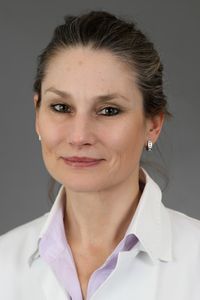
Dr. Dr. Ursula Mirastschijski, MD, PhD, is head of the Wound Repair Unit, Centre for Biomolecular Interactions Bremen, Faculty of Biology and Biochemistry, University of Bremen, and works clinically as a plastic and reconstructive surgeon. Before moving to Bremen, she worked in clinics and performed research at the Otto-von-Guericke University in Magdeburg and at Hannover Medical School, Hannover, Germany. Ursula obtained an ERC Starting Grant for wound healing studies on surfactant and matrix metalloproteinases in skin and continued her work with a clinical phase I study on human volunteers funded by an ERC Proof-of-Concept Grant. Dr. Dr. Mirastschijski is associate professor and lecturer at Hannover Medical School and Secretary of the European Tissue Repair Society.
Professor Vasilis Ntziachristos, PhD
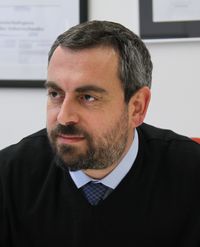
Vasilis Ntziachristos Ph.D. is Professor of Medicine, Professor of Electrical Engineering and Director of the Chair for Biological Imaging (CBI) at the Technical University of Munich, Director of the Institute for Biological and Medical Imaging (IBMI) at the Helmholtz Zentrum Munchen and Director of Bioengineering at the Helmholtz Pioneering Campus. He has received the Diploma in Electrical Engineering and Computer Science from the Aristotle University of Thessaloniki, Greece and the M.Sc and Ph.D. degrees in Bioengineering from the University of Pennsylvania in Philadelphia PA. Prior to his current appointment he was faculty at Harvard University and the Massachusetts General Hospital. Professor Ntziachristos is the Editor of the journal Photoacoustics, regularly Chairs in international meetings and councils and has received numerous awards and distinctions, including the Chaire Blaise Pascal (2019), the Gold Medal from the Society for Molecular Imaging (2015), the Gottfried Leibnitz prize from the German Research Foundation (2013), the Erwin Schrödinger Award (2012) and was named one of the world’s top innovators by the Massachusetts Institute of Technology (MIT) Technology Review in 2004.
Vasilis Ntziachristos M.Sc. Ph.D.
Professor and Chair for Biological Imaging
Director, Institute for Biological and Medical Imaging
Director of Bioengineering, Helmholtz Pioneering Campus
Technische Universität München & Helmholtz Zentrum München
School of Medicine and School of Electrical Engineering
www.cbi.ei.tum.de; www.helmholtz-muenchen.de/en/ibmi/
e-mail: v.ntziachristos@tum.de
Yuval Rinkevich, PhD
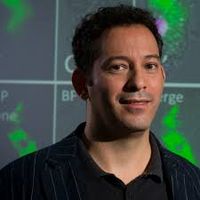
Since 2015, Young Principle Investigator with supervising and mentoring position at the Institute for Lung Biology and Disease, Comprehensive Pneumology Center (CPC), Helmholtz Zentrum, Munich, Germany. He obtained a PhD degree in Biology from Technion of Israel Institute of Technology, Haifa in 2008. From 2008 until 2014, he was postdoctoral fellow of Prof. Irving L. Weissman, Stanford Institute for Stem Cell Biology and Regenerative Medicine at Stanford University, USA. In 2014 he became Basic Life Science Research Associate at Stanford University. Yuval’s scientific focus lies in identifying principles of tissue/organ regeneration, and developing a knowledge basis for therapeutic strategies in clinical use. His lab is exploring the stem cells, embryonic lineages and mechanisms by which tissues/organs regenerate following injury, at multiple levels of biological organization. His research is currently funded by grants from the Else-Kröner-Fresenius Stiftung (EKFS), Human Frontier Science Program Organisation (HFSPO), German Research Foundation (DFG) the Fritz Thyssen Stiftung (FTS) and the European Research Council consolidator Grant (ERC). Yuval is member of several Scientific Societies and publishes in peer-reviewed journals. He gives lectures at numerous, distinguished Conferences and Institutes.
.
Herbert Schiller, PhD
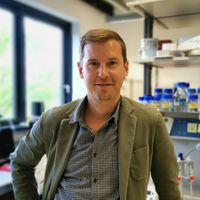
Herbert Schiller studied biology (genetics) at the University of Vienna and received his PhD in molecular immunology in 2008. During his postdoctoral training with Reinhard Fässler and Matthias Mann at the Max Planck Institute of Biochemistry he developed and applied proteomic and cell biological methods to study cellular mechanosensing and the extracellular matrix in tissue fibrosis. Since 2015 he runs his own laboratory at Helmholtz Zentrum München with a strong focus on experimental systems biology approaches to organ regeneration and fibrosis. Using mass spectrometry driven proteomics and single cell genomics, in combination with mouse models of lung disease and human patient samples, the Schiller lab wishes to identify fundamental molecular principles of organ regeneration, homeostasis and fibrosis.
Alexandra Marques PhD
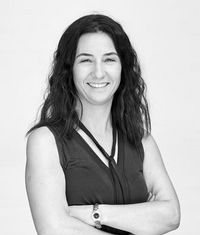
Vice-Director of the 3B’s Research Group, University of Minho, Portugal.
EWMA/ European Wound Management Association/ Council member
Main Research Topics:
- Skin tissue engineering
- Bone tissue engineering
- Vascularization
- Stem cells differentiation
- in vitro 3D models
Integration of stem cells and biomaterials knowledge into tissue engineering as a way to define innovative strategies to improve the functionality of bone and skin tissue engineered constructs. The establishment of in vitro 3D culture platforms to understand cellular crosstalk as well to be able to modulate the engineered constructs outcome has been the focus of her work. Mimicking tissue’s native extracellular matrix (ECM) by exploring cell-sheet engineering technology and innovative hydrogel-like matrices has been contributing to address her goal on tackling the limitations of skin tissue substitutes such as the lack of vascularization and the limited source of “regenerative” epidermal cells.
Rubén A. Ferrer, M.D., Ph.D.
Department of Dermatology, Leipzig University

